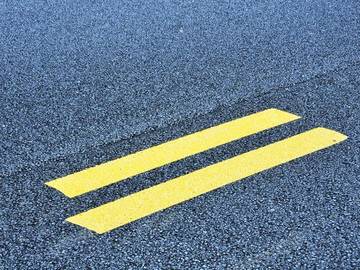What to KnowTo equate two things means “to treat them as equal.” Conflate originally meant “to fuse or blend,” but it has more recently also been used with the meaning “to confuse.”
Conflate and equate look and sound similar, and they appear in the same kinds of contexts, which makes them ripe for confusion.
Harry the Dog was in the garden weeding his flower beds. Mabel the Cat approached and said:
"Harry, what lovely marigolds!"
Harry started, speechless for just a moment:
"My dear Mabel, these are not marigolds; they are zinnias. I am shocked you would equate the two."
To which Mabel responded:
"Oh, my dear Harry: I will admit to mistaking the zinnias for marigolds, but to say that I equated the two is a mistake of its own—for, I did not equate them, I conflated them."
And at this juncture, we will leave our anthropomorphized mammalian friends to discuss the lexical matter they have introduced: just what is the difference between equate and conflate? Did Harry misspeak? Did Mabel in fact conflate the two kinds of flowers?

When 'conflate' first appeared in English it was with the meaning "to bring together; to fuse."
'Equate' vs. 'Conflate'
To equate two things is, in the most common sense of the word, to treat, represent, or regard those things as equal or equivalent. If Mabel equates marigolds with zinnias, she thinks that that marigolds and zinnias are basically—and maybe even exactly—the same thing.
And what does it mean if Mabel conflates marigolds and zinnias? In the newest sense of that word, it means that she confuses them. Mabel knows that marigolds and zinnias are distinct genuses (or genera, if you prefer the Latin plural), but when she see marigolds she sometimes accidentally applies the word zinnia, and vice versa.
The Original Meaning of 'Conflate'
This is not what conflate has always meant. When conflate first joined the English language in the early 17th century it was with the meaning "to bring together; to fuse," a meaning very close to the meaning of its Latin forebear conflare: "to blow together; to fuse." In this sense of the word, to conflate marigolds and zinnias is to fuse them together in your mind into a single kind of flower—into what perhaps might also be called a marinnia, or a zinnigold. Not quite the same as equating them, but similar.
(A side note: in the 19th century, this "fuse" use of conflate developed a literary meaning applied to the combining of two readings or versions of a text into a composite whole, as when two drafts of a poem are blended into a version that includes elements of each. Most of the Shakespeare plays we know are, for example, the product of conflation. But this meaning is not much applied outside of technical literary contexts.)
People who write about usage matters tend not to address the newest meaning of conflate, but the American Heritage Dictionary did have its panel of usage experts weigh in on the issue in 2015. At that time, 87% of these experts approved of the older "bring together; fuse" meaning of the word, while only 55% approved of the "confuse" sense.
This isn't terribly surprising, given how new the use is. The "confuse" meaning of conflate first entered Merriam-Webster dictionaries in 1973, in that year's brand-new Eighth Edition of Merriam-Webster's Collegiate Dictionary. Up till then, in fact, the Collegiate didn't enter conflate, only its related noun conflation, which it defined as "BLEND, FUSION; especially : a composite reading or text." Conflate was covered in our unabridged dictionary, Webster's Third New International, but it was simply too rare a word for the Collegiate. For reasons quite unknown, conflate became dramatically more common as the 20th century edged closer to its end, and when the Eighth Edition was being prepared, evidence for conflate was significant enough to qualify the word for entry, and to require that this new "confuse" meaning be included.
The "confuse" meaning of conflate is now arguably its most common meaning—although in some cases it can be difficult to tease apart just which meaning is being applied. We return now to our friends:
"Harry, are you still puttering in the garden?" Mabel asked as the golden light of late afternoon spread across the yard.
"Mabel," he replied, "I am weeding. I'd appreciate your not conflating my weeding with puttering."
By this, does Harry mean that Mabel has mistakenly identified his active weeding as mere puttering? Or does he mean that she incorrectly thinks that the serious work of weeding is really just a kind of puttering—that is, that she's fused weeding and puttering into a single vague activity? Harry wasn't available for clarification at the time of publishing, but we can say that conflate is an appropriate word in the context, if a bit ambiguous.
And what of equate? Harry could just as well have used that word in this particular instance, in which case he'd be asserting that Mabel thinks that all weeding is really just puttering—which is not so very different at all from the "fuse" meaning conflate carries in the context.
Given all this, we won't blame you if you conflate or confuse these terms from time to time.




